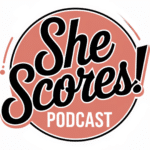Resources for Legal Support: Expert Guidance on Your NIL Journey
Navigating the Name, Image, and Likeness (NIL) landscape can be daunting.
Finding the right legal support is crucial for athletes aiming to maximize their NIL opportunities.

The new guidelines present exciting, game-changing chances for athletes to monetize their personal brands.
Athletes need knowledgeable advisors to ensure they make the most of these opportunities while safeguarding their rights.
This can be a complex process, involving contract negotiations, brand endorsements, and financial planning.
Proper legal guidance helps athletes understand the ins and outs of NIL rights and agreements.
Experts with experience in the NIL landscape can offer solutions tailored to each athlete’s specific needs.
Advisors with a deep understanding of this field can help athletes avoid potential pitfalls and ensure they are fully equipped to succeed in their NIL journey.
Learn more about how you can find the right partners to support you through this transformative time in sports.
Understanding the NIL Marketplace
Table of Contents
- 1 Understanding the NIL Marketplace
- 2 Selecting Skilled NIL Advisors
- 3 Legal Aspects of Name, Image, and Likeness
- 4 Building and Leveraging Personal Brand
- 5 Parental and Coaching Guidance
- 6 Ensuring Continuity and Stability
- 7 Frequently Asked Questions
- 7.1 What steps should be taken to select a competent agent for NIL representation?
- 7.2 How is an agent’s commission typically structured for representing athletes in NIL agreements?
- 7.3 What are the eligibility rules for college athletes seeking representation for NIL opportunities?
- 7.4 What are effective strategies for identifying and securing NIL endorsements?
- 7.5 Are there any legal considerations athletes should be aware of when entering into NIL contracts?
- 7.6 What resources are available for athletes to ensure fair representation and legal support in NIL negotiations?

Navigating the NIL marketplace involves understanding significant shifts in opportunities, state laws, and overall impact on student-athletes.
The rise of NIL potential, coupled with varying state regulations, has transformed college athletics, while the commercial dynamics present new financial avenues.
The Rise of NIL Opportunities
The introduction of Name, Image, and Likeness (NIL) rights has opened doors for student-athletes.
They can now engage in endorsements, sponsorships, and other commercial activities.
This change allows athletes to build personal brands and capitalize on their marketability.
Caitlin Clark, a University of Iowa basketball player, earned over $3 million from NIL deals, highlighting the earning potential.
This shift marks a revolution in how student-athletes can financially benefit during their college careers.
The NIL landscape is governed by a complex web of state laws and NCAA regulations.
As of August 1, 2024, new NCAA rules allow athletes broader freedom in pursuing NIL deals while maintaining compliance with Title IX.
Book Your Dream Vacation Today
Flights | Hotels | Vacation Rentals | Rental Cars | Experiences
These relaxed restrictions enable more opportunities but require a keen understanding of varying legal frameworks.
State laws differ, creating a patchwork regulatory environment.
It’s crucial for student-athletes and their advisors to stay updated on these laws to avoid potential pitfalls.
Advisors play a key role in navigating this complex terrain, ensuring athletes’ compliance with both NCAA and state-specific regulations.
Assessing Market Dynamics and Financial Implications
Engaging in the NIL marketplace demands literacy in market dynamics and financial implications.
Universities are integrating NIL activities into athletic programs, offering resources for branding and education.
For instance, Clemson University has opened facilities dedicated to athlete branding.
Understanding the financial aspects involves more than just signing deals.
It’s about long-term impact, tax implications, and managing earnings responsibly.
Advisors, including financial experts and legal counsel, become essential as athletes navigate this new landscape, turning NIL opportunities into lasting financial gain.
Selecting Skilled NIL Advisors

Choosing the right NIL advisors can significantly impact an athlete’s success in securing and managing endorsement deals, partnerships, and sponsorship agreements.
Criteria for Choosing the Right Advisors
Selecting the right advisor begins with understanding their expertise and legal experience, particularly in NIL deals and contracts.
Advisors should have a solid grasp of personal brand management and a track record in advising athletes.
It’s beneficial to look for those who have guided athletes in similar situations.
Potential NIL advisors must demonstrate an ability to negotiate favorable terms with sponsors and service providers.
Advisors with knowledge in financial planning and investment are valuable since NIL deals often involve complex financial decisions.
Transparency and clear communication are fundamental; athletes need to feel confident and empowered by their advisor’s counsel.
Understanding Advisor Services and Fees
Knowing what services an advisor offers is essential.
Common services include contract negotiation, financial planning, tax advice, and ongoing legal counsel.
Advisors might also help in developing the athlete’s personal brand and securing profitable endorsement deals.
Fees can vary widely among advisors.
Some charge a fixed rate, while others take a percentage of the athlete’s earnings.
It’s crucial to understand these fees upfront.
Comparing fee structures among potential advisors can help in selecting the most cost-effective option.
Beware of hidden fees and insist on detailed explanations of all charges.
| Service Offered | Potential Fees |
|---|---|
| Contract Negotiation | Percentage of contract value |
| Financial Planning | Hourly rate or fixed fee |
| Tax Advice | Hourly rate or retainer fee |
| Ongoing Legal Counsel | Retainer fee |
Evaluating Advisor Credibility and Track Record
When evaluating an advisor’s credibility, look at their history of success with other athletes.
Testimonials and case studies can offer insights into their effectiveness in managing NIL deals and personal branding efforts.
Check if the advisor has experience with major sponsors and can navigate the legal complexities around NIL agreements.
Professional qualifications matter.
Advisors should have relevant certifications or degrees, and belong to well-known industry associations.
It’s also wise to inquire about any past legal issues or complaints.
A thorough background check can help ensure the advisor’s integrity and reliability.
Legal Aspects of Name, Image, and Likeness
Navigating the complexities of Name, Image, and Likeness (NIL) involves understanding contracts, ensuring compliance with various regulations, and mitigating risks associated with NIL activities. Proper legal support is essential for managing these aspects effectively.
Understanding Contracts and Agreements
NIL contracts define the terms under which an athlete can use their name, image, and likeness.
These agreements usually include details on compensation, duration, and permitted uses.
Disclosure of all terms is vital to prevent misunderstandings.
Contracts may also contain termination clauses that outline conditions under which the agreement can end.
Athletes should be mindful of the conditions that may constitute a breach of the contract, as this could lead to legal disputes.
Compliance with Regulations and Laws
Compliance with both state and federal regulations is critical in managing NIL rights.
Each state may have its own NIL laws and restrictions that athletes must follow.
These laws often dictate how student-athletes can profit from their NIL and what actions are prohibited.
Legal compliance involves understanding these laws and ensuring all activities conform to them.
Regulatory bodies, such as the NCAA, also have specific guidelines that must be adhered to, adding another layer of regulatory environment to navigate.
Mitigating Risks with Proper Legal Support
The best way to mitigate risks associated with NIL rights is to seek qualified legal support.
Legal advisors can help manage risk management strategies by ensuring contracts are compliant and appropriately protect the athlete’s interests.
They can also identify potential conflicts that might arise from NIL activities and provide solutions to avoid them.
Best practices include regularly reviewing and updating contracts to reflect any changes in laws or regulations, thereby minimizing the risk of legal disputes.
Building and Leveraging Personal Brand
Creating a personal brand opens doors for college athletes, enhancing opportunities for success in NIL deals. By focusing on strategic brand building and leveraging collaborations, student-athletes can attract sponsors and develop lasting partnerships.
Strategies for Effective Brand Building
Consistency across platforms is crucial.
Athletes should use the same profile picture, color schemes, and messaging to create a recognizable brand.
Social media platforms like Instagram, Twitter, and TikTok are key to reaching a broad audience.
Content quality matters.
High-resolution photos, well-edited videos, and engaging posts showcase professionalism.
Athletes should share a mix of personal stories, achievements, and behind-the-scenes looks to connect authentically with followers.
Engagement is important.
Responding to comments and messages builds a loyal follower base.
Athletes can conduct Q&A sessions, polls, and live streams to increase interaction.
Understanding and highlighting unique strengths sets athletes apart.
Focusing on what makes them different, whether it’s a unique skill, personal story, or passion outside of sports, makes the brand more memorable.
Collaboration and Partnership Tactics
Forming strategic partnerships amplifies an athlete’s brand.
Working with other athletes, influencers, or brands can reach new audiences. Joint social media posts, giveaways, or guest appearances on each other’s platforms boost visibility.
Aligning with brands that match personal values creates more authentic partnerships.
If an athlete values sustainability, partnering with eco-friendly brands resonates more with their audience. Authenticity in partnerships builds trust.
Taking leadership roles in community events or causes also enhances brand reputation.
Leading a local charity run or speaking at events showcases commitment and leadership, attracting sponsors interested in those qualities.
Finally, networking with industry professionals is key.
Attending events, workshops, and building relationships with coaches, agents, and marketing professionals can lead to valuable insights and opportunities.
Parental and Coaching Guidance
Parents and coaches play a crucial role in guiding student-athletes through NIL developments.
They must be educated on compliance, support structures, and effective communication strategies to maximize beneficial outcomes.
Educating Stakeholders on NIL Developments
Parents and coaches need to stay updated on Name, Image, and Likeness (NIL) developments to provide effective guidance.
Comprehensive education programs should cover key areas like NIL rights and NCAA eligibility rules.
Understanding the legal aspects and compliance requirements helps parents and coaches safeguard the athlete’s eligibility.
Information can be relayed through workshops, informative webinars, and collaboration with experienced NIL advisors.
Having accurate information is crucial for making informed decisions.
Regular updates from NIL advisors ensure parents and coaches are aware of any compliance changes or new opportunities that could benefit student-athletes.
Best Practices for Support Networks
Creating strong support networks for student-athletes involves clear communication and practical guidance from parents and coaches.
They should foster environments that prioritize the athlete’s educational and athletic commitments while exploring NIL opportunities.
Effective support networks provide consistent feedback and emotional support.
Coaches and parents can employ strategies like regular check-ins and goal-setting sessions to keep student-athletes focused and motivated.
Involving professional advisors can also strengthen support networks.
These experts bring valuable insights into NIL deals, contract negotiations, and long-term planning, ensuring that the athlete’s interests are protected and maximized.
Ensuring Continuity and Stability
The NIL landscape requires careful planning and trusted advisors to navigate Collegiate Sports through to Professional Opportunities.
Longevity and career progression depend on managing transitions with stability.
Navigating the changes brought by the NIL landscape can be like traversing the Wild West.
It’s essential for athletes to stay informed about evolving regulations and opportunities.
Laws and guidelines can shift quickly, impacting what deals are possible.
Advisors play a critical role in this environment.
They ensure athletes are up-to-date and compliant with changing regulations.
Professional advisors also provide insights into future trends.
Keeping an eye on the horizon helps athletes make informed decisions about their NIL deals, safeguarding their long-term best interests.
Building Long-Term Relationships with Advisors
Establishing strong, trusted relationships with advisors is vital.
This trust underpins successful career progression from Collegiate Sports to professional levels.
A long-term advisor can offer continuity and stability, ensuring that decisions align with the athlete’s best interests.
Advisors help athletes capitalize on NIL opportunities while remaining focused on their long-term goals.
Maintaining open, transparent communication ensures advisors understand the athlete’s personal and professional aspirations.
This alignment helps in crafting a strategic plan that supports both immediate and future success in the NIL landscape.
Managing Transition from College to Professional Levels
Transitioning from college to the professional leagues presents unique challenges.
The shift demands a greater level of professionalism and often comes with increased scrutiny.
Advisors help manage this transition smoothly, helping athletes maintain their momentum.
They provide critical support in navigating contract negotiations and endorsements in their new professional roles.
By strategically planning early, athletes can secure a smoother transition, leveraging their collegiate success into a robust professional career.
This support ensures career evolution is marked by stability and continuous growth.
Establishing a solid foundation in college, with the guidance of experienced advisors, prepares athletes for the complexities of professional life, ensuring they can maximize opportunities and sustain success.
Frequently Asked Questions
Navigating Name, Image, and Likeness (NIL) opportunities can be complex. This section addresses key questions athletes might have when seeking representation and endorsements.
What steps should be taken to select a competent agent for NIL representation?
Athletes should first verify an agent’s credentials and ensure they are registered with relevant associations.
Consulting with other athletes and coaches for recommendations can be beneficial.
Interviewing multiple agents to understand their experience with NIL deals and contract negotiations is crucial.
How is an agent’s commission typically structured for representing athletes in NIL agreements?
Agents usually charge a percentage of the athlete’s NIL earnings, with common rates ranging from 10 to 20 percent.
It’s important to review and understand the fee structure within the contract.
Some agents might also offer tiered commission rates depending on the value of the endorsements secured.
What are the eligibility rules for college athletes seeking representation for NIL opportunities?
The NCAA has guidelines stipulating that college athletes can engage in NIL activities while maintaining their amateur status.
Athletes must disclose their NIL deals to their institutions and avoid agreements that conflict with team sponsorships or violate NCAA policies.
What are effective strategies for identifying and securing NIL endorsements?
Building a personal brand through social media and engaging with fans is essential.
Athletes should network with companies and use platforms designed for connecting with brands seeking endorsements.
They should also create compelling pitches that highlight their unique value to potential sponsors.
Are there any legal considerations athletes should be aware of when entering into NIL contracts?
Athletes should ensure that contracts clearly outline the terms, compensation, and obligations.
Reviewing these agreements with a legal advisor can help avoid pitfalls.
Understanding exclusivity clauses, intellectual property rights, and dispute resolution mechanisms is also important.
What resources are available for athletes to ensure fair representation and legal support in NIL negotiations?
Athletes can turn to various organizations for support. The American Bar Association offers legal resources.
Platforms like LawHelp.org provide access to low-cost legal aid. Consulting with experienced legal advisors is key to navigating NIL contracts effectively.

